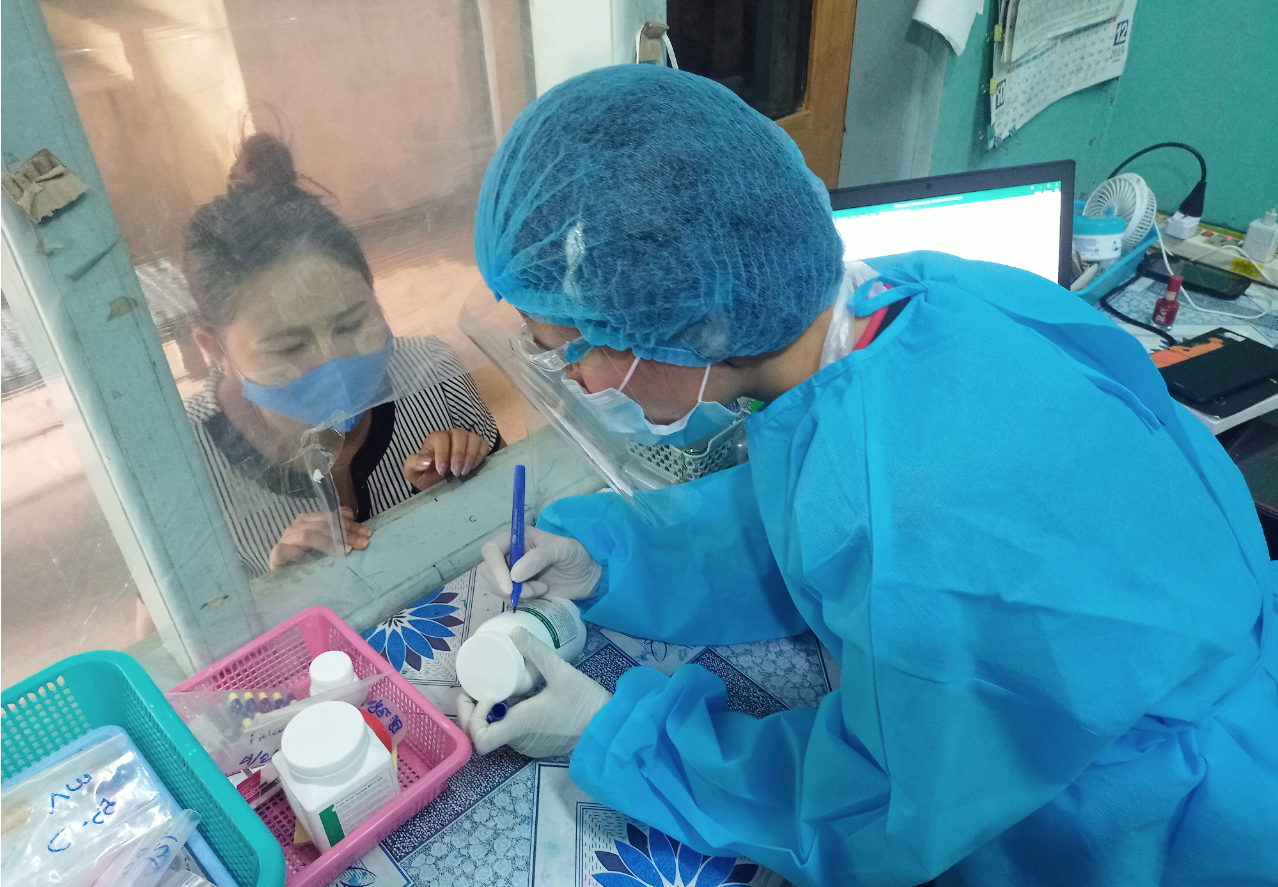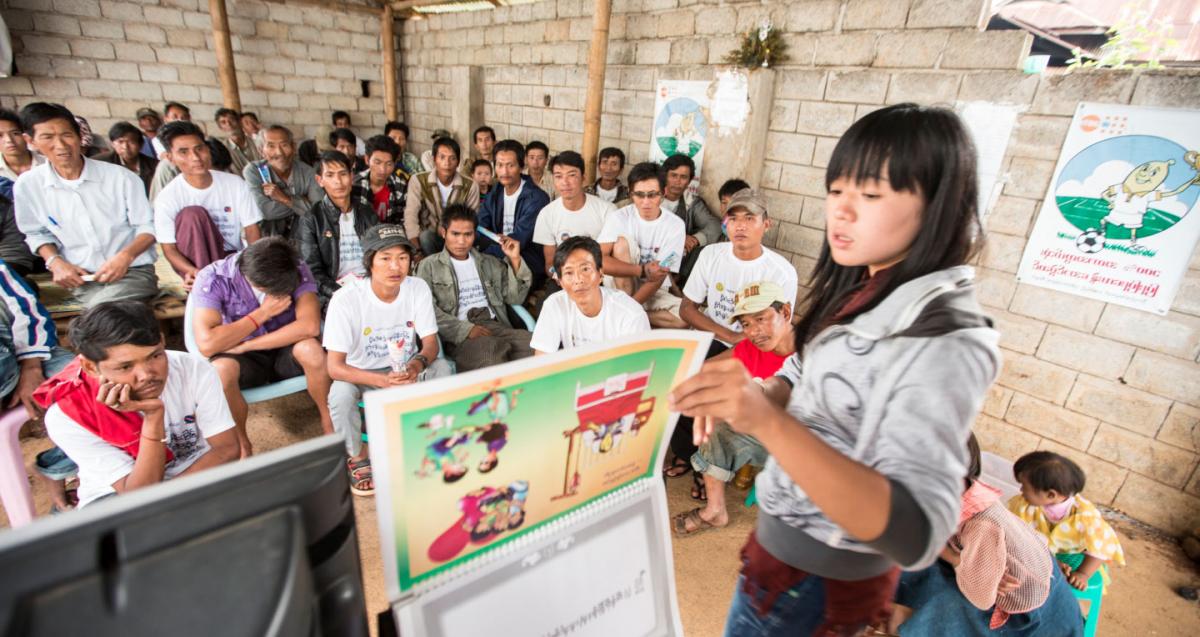While continuing to grapple with the COVID-19 pandemic, it is very vital that the control efforts for other killer diseases such as HIV, TB and malaria are not neglected and that service be continued. In the case of HIV/AIDS, UNOPS continues to maintain prevention, care and treatment services while undertaking COVID-19 infection control measures.
Here are some of the ways that UNOPS, through its Sub-recipients, is mobilizing activities so that the interventions are carried out uninterrupted.
HIV Prevention and Testing Activities
During this unprecedented period, movement restrictions related to physical distancing, quarantine, and lockdowns were imposed to help reduce COVID-19 transmission. Such limitations in outreach activities led to an initial decrease in the number of clients accessing the Key Population Service Centres (KPSC) and further hindered the HIV prevention and testing services. Luckily however, additional measures have been introduced such as multi-month dispensing of MMD to limit adverse impact of restrictions imposed.
The sub-recipients under UNOPS SRs are making every effort to overcome these challenges across the country. With the help of the trained People Living with HIV (PLHIV) within the same locality, where there are limited travel restrictions, one-to-one peer outreach activities are being conducted to ascertain that prevention services are delivered to the people in need.
HIV testing services are also provided without disruption through Facility-based HIV testing service by staff with alternate assigned duties, and during the regular follow up to the patients. The counselling services are provided with physical distancing such as through glass partition between the two parties or telecommunications. Service providers follow the Infection Prevention Control guideline when providing services.
HIV Care and Treatment Activities
There have been challenges related to the PLHIV access to antiretroviral treatment (ART) due to the restrictions in travel in some States/Regions where people cannot cross townships to receive their treatment. In such cases, ARVs are delivered to the Township border so that clients can have easy access to it. In some specific cases, ARVs are allowed to be dispensed at the nearest ART Center/DC sites if there are restrictions to travel to the client’s regular routine site. Moreover, Multi-Month Dispensing of ARV is being practiced to prevent disruption of ART in case of a full lockdown. These are a few innovations in service delivery already deployed.
If the client has to stay in a facility or home quarantine, our SRs are making sure that these clients do not miss ART during these days while respecting the confidentiality and dignity of the client by communicating via phone or online as appropriate.
The SRs also ensuring uninterrupted Methadone Maintenance Therapy (MMT) by practicing take-home methadone dosages. This reduces the frequency of visits to the MMT Center by the clients. Physical distancing among the clients and infection control measures are practiced in the facilities.
From 2011 to 2019, the HIV grants have made it possible to deliver ART to 156,738 PLHIVs; 24.4 million needles and syringes distributed to drug users, and 19,991 PLHIV received opioid substitution therapy. UNOPS continues to deliver the results during the critical time of COVID-19 while maintaining safe working environments for healthcare workers.



